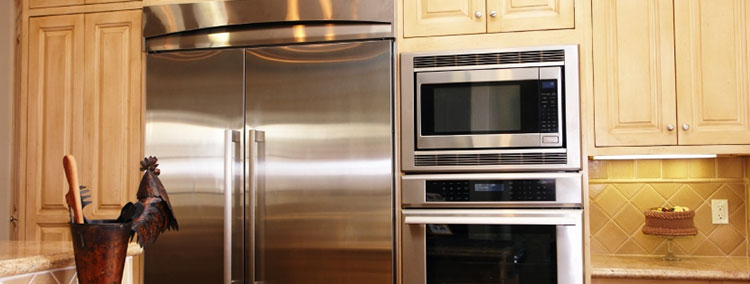
If you are going on vacation for a month or more, you can’t keep your electric appliances running. One of the questions you must be asking is, should I turn off the refrigerator when not in use?
The answer to this question is a definitive yes. Appliance repair professionals recommend you turn off the fridge and unplug it at the wall.
The obvious reason you should shut the fridge is to save power. You don’t want to keep receiving high energy bills you aren’t consuming, are you?
The other reason you should shut the appliance is because you don’t want to keep worrying about what is going on at home.
Although, they are good servants, most appliances are ticking time bombs especially when they run unsupervised. They can fall, catch on fire, among many other things.
When you shut your appliance, you have peace of mind that none of your units can start a fire in your absence.
Besides shutting and disconnecting the fridge, there are several other things you should do when you will be gone for extended periods. Some of these things include:
Defrost and clean the appliance
If you don’t properly clean the fridge before storage, you will create a lot of mess that the fridge will be unusable by the time you are retrieving it from storage.
One major concern is mold that often starts from the food debris and spreads to the other parts of the fridge. There is also the pests concern. Ants and rodents can be attracted to even the smallest food pieces so when you don’t properly clean the fridge, these pests can get into your appliance and cause damage to the electrical components.
To defrost the fridge, remove all the food items and unplug the fridge. This will trigger the defrosting process and you should keep the refrigerator doors open so that moisture can escape from the fridge.
To avoid flooding your floor, strategically place a towel to catch the dripping water.
For peace of mind that the fridge is completely dry, defrost it at least a week before you leave for your vacation.
As the fridge is defrosting, you should clean both the insides and back of it.
Take out the drawers, shelves, and other removable parts of the appliance. Clean and soak these parts with mildly soapy water. For best results, ensure the water is warm. Avoid scalding hot water as it can damage the cold plastic or glass.
Using a mixture of baking soda and water, scrub away any materials that might have built up inside the fridge and freezer compartments.
As much as you want the fridge to be spotless, don’t use chlorine bleach, ammonia, or any other abrasive cleaning solutions as they can crack or even discolor the plastic and stainless steel.
Once the insides of the fridge are clean, turn your attention to the outside. Dust the coils using a brush attachment or run a vacuum cleaner. You can also use a dry cloth.
Store the fridge in an upright position
If you will be moving the fridge from its usual place, use a dolly or hand truck to move it. As a rule of thumb don’t move the fridge while laying on its side.
When you store it, ensure that it’s not in a slanting position—it should always be in a straight position.
The reason for this is to ensure that you come home to a properly functioning compressor.
Keep the fridge dry
The last thing you want is to reverse all the hard work you have put into cleaning and defrosting your appliance.
To ensure that your fridge remains dry and no moisture gets inside, remove the doors on both the fridge and freezer compartments.
According to refrigerator repair Springfield professionals, when you do this, you ensure no seal forms so your appliance is free from molds.
If you don’t want to go through the trouble of removing the doors, wedge an object between the door and the compartment frame so that the door remains open.
When choosing the wedging object, ensure that the object is tough and won’t bend or get indented over time hence close the door and cause the damaging seal to form.
The post Should I Turn Off Refrigerator When Not In Use? first appeared on HVAC Repair, appliance repair. The post appeared first on Express Appliance Repair